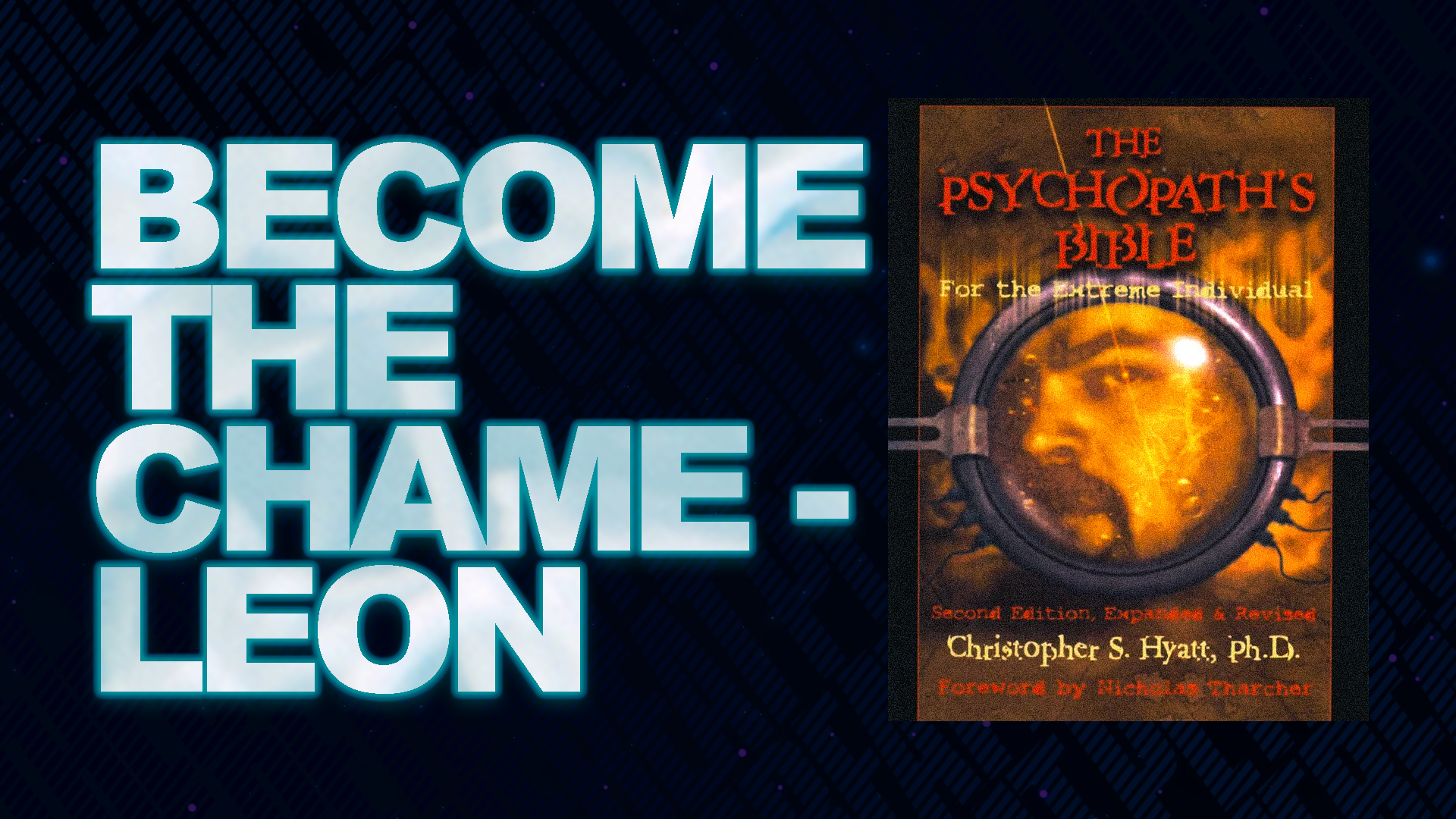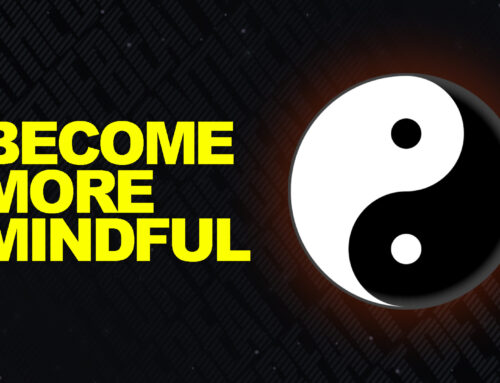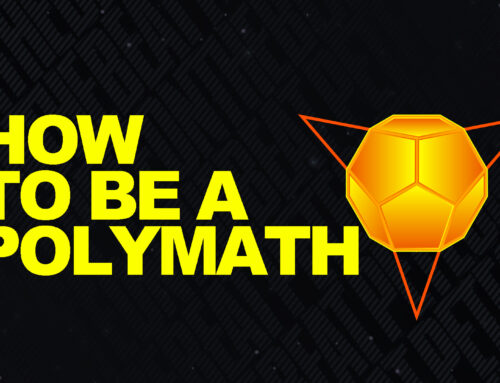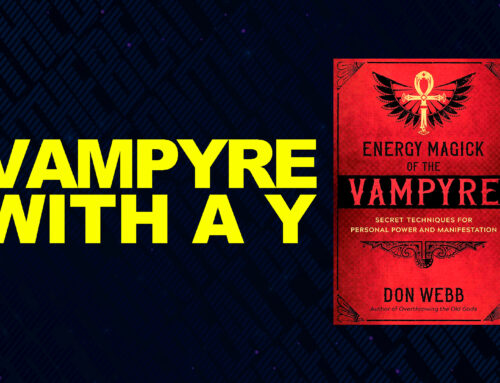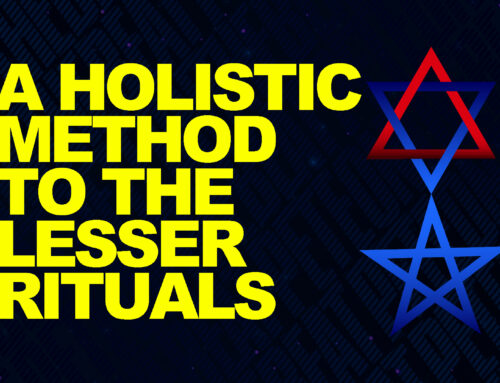Introduction
“Everyone is a psychopath…”
This is the most critical message in Dr. Christopher Hyatt’s The Psychopath’s Bible. Starting with a humoristic recommendation to check with your doctor, lawyer, and local police station, before attempting anything written in it, the book distinguishes itself from the ‘sweetness and light’ fluff in typical self-help and spirituality books. Mixing occultism, philosophy, and social psychology, it presents truths the most have difficulty swallowing. Therefore The Psychopath’s Bible is written for a rather exotic person. While I by no means pretend to fall into this category, I’ll briefly discuss some parts I find most interesting.
Before that, let me remind you to subscribe to all my channels if you like the content. Consider purchasing my books and making a small donation using the provided links. That given, let us begin with the author, helping you understand why his work gets reviewed on this blog.
Christopher Hyatt
Born Alan Ronald Miller, Christopher Hyatt was a psychologist and occultist with two master’s degrees and two PhDs. Hyatt founded Falcon Press and published authors like Robert Anton Wilson, Timothy Leary, Lon Milo Duquette, and others, including Isreal Regardie, of whom he was a student. Hyatt was involved in numerous orders and occult systems, including Chaos Magick, Thelema, and the Golden Dawn, which he started a chapter of in the 90s.
Pandemonium
According to the American Heritage Dictionary, a psychopath is a person who engages in psychopathic behavior or is affected by antisocial personality disorder. The Psychopath’s Bible stresses how the word is almost always associated with criminal activity; also how both ‘socio’ and ‘psychopath’ are marked as the same ‘Antisocial Personality Disorder.’ Hyatt explains this is for the convenience of the psychiatric and justice systems enabling them to consider only behavior without intentional internal psychological factors.
‘Socio,’ vs. ‘Psychopath’
Elsewhere, The Psychopath’s Bible makes a definitive distinction between ‘socio’ and ‘psychopath.’
“(…) there’s a simple difference between ‘socio’ and ‘psychopath:’ the sociopath is against people and himself. He is dependent. He needs to harm others to be himself…”
“The ‘psychopath’ exists for himself……other people are simply there—as allies, obstacles, tools—but mostly they are just there……he causes no harm for harm’s sake…..he stands for more life, joy, power, and freedom for himself and his own kind…”
According to the American Heritage Dictionary, a psychopath is a person who engages in psychopathic behavior or is affected by antisocial personality disorder. The Psychopath’s Bible stresses how the word is almost always associated with criminal activity; also how both ‘socio’ and ‘psychopath’ are marked as the same ‘Antisocial Personality Disorder.’ Hyatt explains this is for the convenience of the psychiatric and justice systems enabling them to consider only behavior without intentional internal psychological factors.
True Individuality
The Psychopath’s Bible reviews that society treats true individuality as a pathology. That includes everyone disagreeing with the notion of consumerism, marriage, reproduction, and basically living a group life. Standing against violence and offense, the book separates violent and unacceptable behavior from the term ‘psychopath.’ It further explains that while violent ones ‘surely’ exist, that’s only one of many types of psychopaths. So linking those is extremely narrow-minded. And in reality, psychopaths often turn out to be some of the most successful, influential, and well-reputed people.
Different Psychopaths
“In reality, there are many operating psychpaths who never reach the public eye. Some are never identified as such because they are successful at what they do (i.e., they don’t get caught). Many more are never characterized as psychopaths because do not exercise unacceptable criminal behavior (remember that criminal behavior — especially violent criminal behavior — is usually considered one of the essential, defining characteristics of the Psychopath) and are thus considered acceptable, even valuable, members of society…”
Addressing some definitions of the term psychopath, the Psychopath’s Bible brings one provided in the 4th edition of Diagnostic of Statistical and Mental Health.
“The essential feature of Antisocial Personality Disorder is a pervasive pattern of disregard for, and violation of, the rights of others that begins in childhood or early adolescence and continues into adulthood…”
The Rights of Others
The Psychopath’s Bible marks how the same DSM-IV doesn’t define what the actual ‘rights’ are supposed to be nor recognizes complete mental health as an ‘actually possible’ thing; it ‘rather’ acknowledges any human as a particular kind of Psychopath. The Psychopath’s Bible suggests familiarizing yourself with such reads. That way, you can recognize your and your family’s and friends’ mental disorders, which, as we know from Israel Regardie, will be of great use to the serious occult student.
How Much Self-Esteem
Using commonsense, Hyatt addresses аn obvious societal controversy to be also apparent in the same DSM-IV. While global culture praises high self-esteem, exhibiting more than your shrink accepts is unacceptable. But does this make you a psychopath, and should you read the book?
The Toxick Magician, aka The Practitioner
You can find the answer to the first by doing the earlier mentioned. The Psychopath’s Bible stresses that while all psychopaths can benefit from reading it, one type will reap the most benefits. In a nutshell, that’s an exceptionally capable/talented individual, unable to fit within the group mind; a radical nonconformist with a unique perspective, essence, skillset, and charisma. Historically, society’s governing forces have no use for such people but to turn them into slaves to a cause, god, group, and, apparently, today’s companies. Therefore the Psychopath’s Bible is high-quality self-help for such people.
“This book was written to applaud, encourage and counsel the best among this wretched, sheeplike species called “man.” It pulls no punches, it makes no apologies, it minces no words. It applauds the rare individual who writes his own song, plays his own tune, and lives his own life.
“In particular, it speaks to a particular breed of a psychopath, which we call interchangeably the “Toxick Magician,’ the ‘Practitioner,’ or the ‘Manipulator.’ The most effective of these we refer to simply and reverentially as the ‘Master.'”
As with all psychopaths, he (or she) recognizes the pathetic nature of the human condition and takes from it what he can. But the Toxic Magician goes further: he encourages ‘homo normalis’ to live life according to his nature — the life Thomas Hobbes characterized as “brutish, nasty, and short.” [Leviathan, 1651] He encourages the human race to precipice. He does what he can to help the species destroy itself and let nature get on with something(s) different…”
I don’t know about you, but I think this compliments the later-included quote from Nietzsche’s Antichrist.
“This more valuable type has existed often enough already: but as a lucky accident, as an exception, never as willed. He has rather been the most feared, he has hitherto been virtually the thing to be feared – and out of fear, the reverse type has been willed, bred, achieved: the domestic animal, the herd animal, the sick animal — the Christian…”
Destruction
Speaking of destruction, Hyatt mainly refers to destroying the delusions and illusions manufactured by the societal matrix. Destruction of your preprogrammed desires, the influence of mainstream culture and the corporate world, etc. Essentially, this makes me think the Toxic Magician aligns with or even adopts Set as an archetype and thus kills Apep, eliminating its lies, which are that same matrix and programming.
“The willful application and direction of man’s mind and power to the ends which he desires is the necessary primal force which accomplishes the true organic will of the Toxick Magician…”
“He is a “magician” because he works his own will to achieve his own ends; he is “Toxick” because destruction is his goal. (…) From society’s standpoint, he is the worst of the psychopaths because he does his own work intentionally. As such, he stands apart from their definitions — definitions, which would like to emphasize the inability of the Psychopath to control himself. The Toxick Magician is conscious of his actions and feelings. This makes him especially dangerous…”
Made and Not Born
Usually, ‘Toxick Magicians’ are made and not born, Hyatt explains. Yet, considering some of the author’s comments on Timothy Leary, I believe certain people have the right predisposition. Venerating Gurdjieff, Hyatt mentions that only ‘5% will succeed while the others are food.’ So becoming a ‘Toxick Magician’ requires what Gurdjieff defined as superhuman efforts.
Downsides and Advantages of Being a Psychopath
Although having downsides like the possibility of ending up lonely and the necessity of immense concentration and hard work, such life, Hyatt explains, offers significant benefits. The biggest being freed from society’s delusions about safety and security, the ‘supremacy of the species, randomness, religious and political dogmas, cults, cultures, pointless and time-wasting friendships and interactions, etc. Along with the story of how editors refused to edit and publish it regarding it as a disease that must not spread, The Psychopath’s Bible gives its first lesson.
“Never say exactly what you mean if you want the cooperation of the coward…”
The author explains that despite how pathetic they might seem, everyone is looking for their own interest, which for most people is not being pushed, i.e., finding satisfaction in not playing to win but feeling safe while feeling morally superior to the winners. University degrees get disreputed because they deserve to, and apparently, mediocrity reigns.
Comments
Regarding the latter, I suggest considering the numerous people getting into massive debts for virtually useless degrees. Also, how many others make an incredible living as college and even high-school dropouts? Then consider global culture by looking at the celebrity influencers. Then at contemporary self-help, ravenously ranting against ‘mediocrity,’ by re-marketing and reinforcing obsolete patriarchal values and religious dogmas, or by teaching you how to be masculine by growing a beard and blaming women for your misfortune. Lastly, consider the endless count of YouTubers pushing the lowest possible quality with the highest frequency; And how they’re all convinced they have an amazing and unique personality, just like the next guy.
Zehm Alohim
I ask Is this really an alternative? Or, instead, those are some new faces of mediocrity? Whoever he is, I bet Zehm-Alohim knows the answer.
The Strong and The Weak
Also intriguing is how The Psychopath’s Bible presents the dynamic between the ‘strong’ and the ‘weak.’ Hyatt explains that the strong will never get rid of the ‘weak’ because that would be a poor investment, inevitably leading to killing each other, living at a considerable distance, and eventually dying from boredom.
But is man a killer?
Challenging the notion that ‘man is a killer,’ the Psychopaths’ Bible regards man mainly as an ‘exploiter’ and ‘manipulator’ capable of killing when starving to death. The book makes numerous remarks that, as species, humans are innately driven toward mass destruction. It also emphasizes that humanity’s favorite sports are control and manipulation. Even when that leads to the destruction of the self, neither the masses nor their masters care about it.
Not The Typical Rebel
While most mystical schools would advocate against that, Hyatt’s practitioner actively aims to speed up the process of bringing the inevitable future. I believe this makes the practitioner different from the (more traditional) Thelemite or Setian, who would rebel against or regard that as a necessity for controlling the masses. The ‘Toxick Magician’ finds ways to accelerate that process organically: It is their way to thrive and prosper. And while this might sound crude, The Psychopath’s Bible explains that the average Joe, which many campaigns pretend they so dearly protect, is utterly numb to the control and exploitation. In fact, they can’t live without it, incapable of perceiving an alternative.
“(…) the generic victim needs to be a victim. He needs to be controlled, lest he faces a void — an abyss — so deep that Dante himself would have been unable to fill…”
The Victim
When finishing part one, the ‘Toxick Magician,’ Hyatt explains that this ‘victim,’ i.e., the common man is a domesticated primate who has everything necessary to destroy and be self-destructive. Rather than acknowledging and working with that, this domesticated primate gets nullified by his emotions, including depression, guilt, anxiety, sorrow, and fear. And that Hyatt explains is what makes them behave in society which the book likens to an insane asylum.
Comments
On the one hand, this might sadden the reader because of the state of humanity; on another, it makes them want to detach from that, feeling it deserves its faith. It makes you really stop and consider how similar most people are. It also shows the panic attacks and depression sufferers what their issues actually are, their own nature’s devices to keep them on a leash preventing their greatness. And while the more conventional Setian and Thelemite appreciate and even strive to adore those conditions as an indivisible part of themselves and the ecstasy of Nuit, Hyatt’s ‘practitioner’ recognizes them as weakness or hiccup overcome
Toxick Calculus
Regarded as the process of ‘de-education,’ toxick calculus helps you purify your being of your internal and external conditioning and beliefs. Like RAW’s Prometheus Rising and Quantum Psychology, The Psychopath’s Bible explains that doing so is the only way to unveil your full potential and genius, which it basically regards as the ‘psychopath’ within you. It is breaking your chains and becoming what you are truly capable of, rather than following your programming and denying it. Also, like the mentioned books, the Psychopath’s Bible shares the Chaos Magick perspective that gods and goddesses are inventions of the mind. Mentioning ‘de-education,’ the author provides numerous sources for par
Beliefs
“The strength of a man is a function of his beliefs. The more he has, the weaker he is…”
“Belief: Something believed or accepted as true, especially a particular tenet or a body of tenets, simply because a person, an authority, or a number of persons assert it is true. Accepting a string of words as valid without any evidence. As Robert Anton Wilson says, “faith is stupidity…” P.138
The Psychopath’s Bible advocates being brutally honest with yourself and adopting only habits and beliefs, the validity and benefits of which you can test empirically. If something cannot be tested, don’t believe in it; eradicate it from your life. This includes overthrowing idols, ideals, labels, titles, gurus, and deities you worship and emptying your mind of the nonsense you and the world filled it with. For magicians, it also implies purging your practice from rituals that don’t bring any real value to your life.
The Biggest Obstacle
The biggest obstacle to overcome is human’s bondage to their nature. Toxic Calculus, The Psychopath’s Bible explains, is the mathematics of power, i.e., the device through which that obstacle can be overcome. It is de-educating, or basically ‘undoing yourself,’ as Hyatt liked to say.
“Toxic(k): Capable of brain change, power, becoming who you are, especially by inventiveness, practice, will, deceit, and study…”
Calculus: a. The branch of mathematics that deals with limits and the differentiation and integration of functions of one or more variables. b. A method of analysis or calculation using a special symbolic notation. c. The combined mathematics of differential calculus and integral calculus…”
The Reasoning and The Emotional Brain
Hyatt touches on a concept recently getting quite a bit of mention in popular psychology and self-help, the rational (or reasoning) and the emotional minds. The Psychopath’s Bible reveals that, unlike what many think, we are not rational beings; we are emotional beings capable of rational thinking. Ahead of his time, Hyatt explains that our emotional minds or brains are the actual decision-makers. All the reasoning or rationalizing we do is to justify those decisions, making them appear ‘reasonable’ to ourselves.
Comments
To learn more about the latest research on that, I strongly suggest the works of scientists like Kelly McGonigal and Baba Shiv, such as my second book, Discipline or Something Else. The same has plenty of the newest research on that and other topics related to self-discipline.
Co-Independence
Hyatt explains that while most people live in a complete co-dependency bonded by their weaknesses, true individualists need others for their values. They live while others exist. I believe this implies asking whether such a mentality is entirely possible in an extremely-interdependent society. The answer to this question is found pretty much all over the book.
Chameleon
One key is to become very good at pretending and wearing a mask while sharing your work and plans only with the right people. Another is to be maximally adaptable and flexible, learning as much as possible about everything and anything and implementing it whenever the situation calls for it.
‘Be capable of anything at anytime. Your first investment is yourself…’
‘You must learn everything you can, believe everything others believe, and then believe nothing. You become the chameleon while everybody else is becoming some-thing…’
Immensely appealing, this contradicts the notion that each person should have their niche keeping their mind in a cubbyhole and dying a one-trick pony. Instead, it provokes you to explore what your potential offers and make the best out of it. And this reminds me of how the whole book aligns Socrates saying:
“The unexamined life is not worth living…”
So apparently, being Jack of All Trades is the name of the game.
Habits and Brain Change
Once more ahead of its time, The Psychopath’s Bible addresses the subject of habits. Particularly how numerous tiny efforts over the long-term and not one big lift bring the desired results. This is how one’s habits and personality develop through brain change resulting from repetitiously engaging in a specific activity. The more you play chess, write, or code, the more those neuron connections strengthen, making your brain more efficient in those things. Including an excerpt from William James’s Principles of Psychology, The Psychopath’s Bible reveals the miraculous effects of compounding, decades before best-sellers like James Clear’s Atomic Habits and BJ Fogg’s Tiny Habits.
Final Words
Then the book gets into its most practical section, encompassing exercises, rituals, and meditations. I think you’ll most definitely enjoy those if you are a fan of Undoing Yourself, Prometheus Rising, and Quantum Psychology. And now, rather than saying some final words, let me end this review with one of my favorite wisdom gems in the book, asking you to share your thoughts on it in the comments section below.
“The moral idealist will always lose to the man of passion, commitment, and goal: the ‘psychopath.’ A man who loves his work is a rare man indeed and he will always triumph over the moralist—the man who does his work for the ‘right’ reason…”
- The Power of Mindfulness Meditation - May 1, 2024
- An Autobiography of Trauma Book Review - April 23, 2024
- Reflections on Being a Polymath - April 12, 2024


